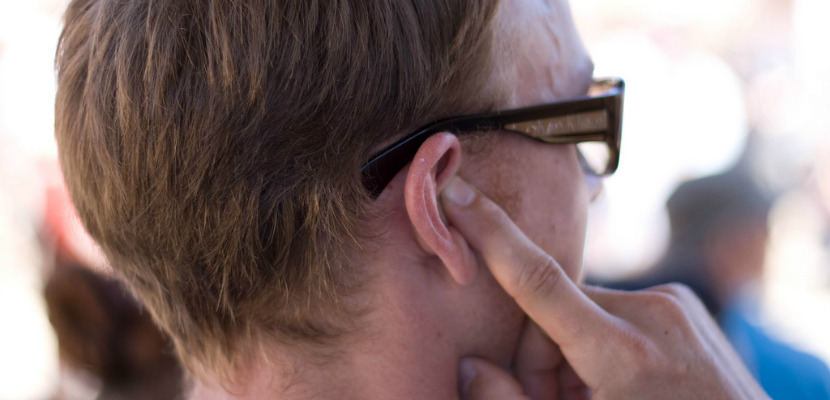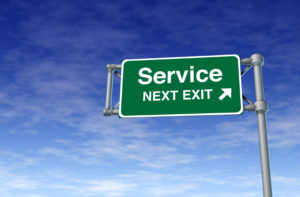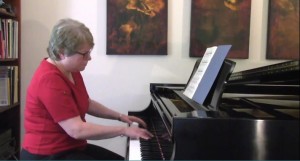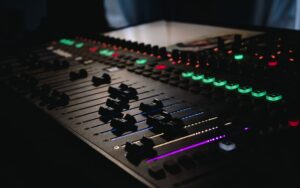All musicians should use hearing protection. This recommendation applies even to musicians and music lovers who currently do not experience any hearing difficulties. For all musicians—pianists, singers, and flutists, professional and amateur alike—the sense that they rely on the most to create music, their hearing, ought to be protected.
As human beings, coming to terms with the dangers of noise exposure is difficult because we instinctively enjoy noise’s energizing and even comforting qualities. The thumping bass and urgent treble of music in an exercise class urges us to burn. The communal, deafening roar at a soccer stadium reassures us that we are part of a group. The crescendo of the symphony in the finale of Beethoven’s Fifth exhilarates us. We tell ourselves that the noise we experience every day–pop music blaring in the mall, or a train or subway car screeching into the station, steel wheels grinding against the track–is short-lived, not sufficiently prolonged to affect our hearing.
In fact, excessive noise, ubiquitous in our society, insidiously eats away at our hearing, sometimes not showing its effects for decades, even for people who currently experience no hearing loss. The Hearing Health Foundation (HHF) helped sensitize me to the dangers of noise. As a board member, I governed not only HHF’s research efforts to cure hearing loss, but also our hearing loss prevention program.
Musicians Earplugs
With my newfound knowledge, I embarked upon a personal program of hearing protection: I purchased a pair of silicone musicians’ earplugs, designed to lower noise without creating distorted or smothered sounds—many musicians wear them while rehearsing. Although a snug fit—the earplugs are customized to prevent harmful noise from seeping into my ear canal—they are surprisingly comfortable.
My earplugs contain filters for different levels of noise protection. I purchased two sets of filters, one that dampens noise by nine decibels, which I tend to wear most often, and a second that blocks all sound, useful for very harmful environments such as sports stadiums, where noise levels can crescendo to greater than 125 decibels, causing in some cases immediate hearing loss.
I wear the musicians earplugs whenever I want to protect my hearing in a discrete manner, such as a loud concert. I also find them very handy at the beauty salon, when my stylist blows out my hair, in order to protect myself from the hair dryer’s deafening decibels.
Noise-Cancelling Headphones
However, the process of removing my hearing aids, storing them in a padded pouch, and then slipping in earplugs can be time-consuming. Now I also own a pair of noise-cancelling headphones.
I found that I can wear the headphones over my hearing aids to block out unwanted noise without experiencing any annoying feedback from my hearing aids. Muting the loud thrum of tires on asphalt while on a road trip can be particularly useful for making a mobile call.
For airplane flights, I take out my hearing aids and simply wear the noise-cancelling headphones. I feel considerably more refreshed after a long flight now that I don’t have to subject myself to the jet engine’s roar, which can easily create a soundscape of 90 decibels or more inside the plane.
I carry the headphones and the musicians earplugs with me at all times because I can’t always anticipate when I will encounter loud noise. Much to my children’s consternation, when we are walking down the street, I have been known to whip out the headphones at the first sound of an ambulance’s insidious whine. I’m determined to protect the hearing that I’ve got.
The Difference Between Protection and Amplification
People with hearing loss in particular need to understand that noise protection is different from amplification. Amplification, in other words making sounds louder and more discernable, whether from hearing aids or personal hearing devices, is crucial for people with hearing loss to be able to function in society. Yet noise protection is just as important.
In my experience, some audiologists are more attuned to noise protection than others. As much as I rely on my current audiologist, I felt she was not sufficiently concerned with noise protection. I researched the topic on my own. I located a Sensaphonics Gold Audiologist. She took impressions of my ear canals, and the company mailed me the musicians earplugs within a few weeks.
Whether or not you currently have hearing loss, protect your ability to transform notes on a page into music. Invest in hearing protection and wear it.





Do musician’s earplugs need to be custom made? I wonder what is available “over the counter” and if that could perform the same task! Would musician’s earplugs protect from high frequencies, or the highest decibels, or both?
Great question! Yes, there are some very good products available OTC, and that is a great place to start before going custom. A couple of good quality OTC earplugs that I’m aware of are EarPeace and Etymotic Research. I would try them on and see how they fit. They typically lower sound by a set number of decibels across the entire frequency range, although you will need to confirm that by reading the product description. Does anyone else have experience with OTC hearing protection that they’d like to add?
I just returned to playing a hymn at a practice at church. I play piano and a man I hadn’t played with
Before was playing a guitar. I felt that he was so out of tune that I chided him and told him to tune his
Guitar. I wear hearing aids,,I am not new to hearing aids but hadn’t played with a guitarist before.
When I came home I looked up your articles and I had never heard of musicians ear plugs. I will
Try them and also thanks for letting me know about music and your ears I thought I was crazy.
I am a Pianist after inserting grommets in my ears the piano sounds very loud and jars my brains.
Are there specialized ear plugs to lower the sound.
Arthur, that’s difficult that the grommets (tiny plastic tubes which are inserted into a small slit in the eardrum) are changing your perception of sound. There are custom musician’s earplugs available. I would search for “musician’s earplugs” online. Also, if you have an audiologist, you may be able to order them there. Although ask first before booking an appointment, since not all audiologists provide this service. One company for custom musician’s earplugs that I am personally familiar with is Sensaphonics. They have a listing of audiologists who can fit their products: https://www.sensaphonics.com/pages/find-an-audiologist. No guarantees, although you might want to check if one of them is accessible to you. Good luck!
I’d like some ear defenders that just attenuate by a few dBs. Most ear defender attenuate too much.
I prefer not to stuff ear plugs in my years. My ears get uncomfortable after a while even with custom earplugs.
Do you know any over-ear ear defenders that would fit the bill?
Many thanks
Hi Jon, thanks for writing. This is a good question. I don’t know the answer right off the bat, but I will definitely respond back if I come across something. Best, Nancy